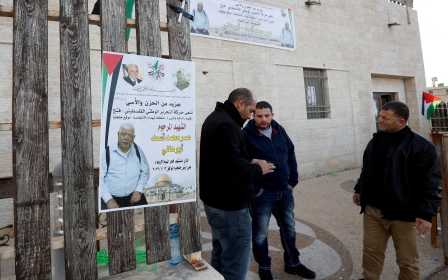Pro-Palestinian 'from the river to the sea' chanters could be referred to police, UK minister says

Protesters chanting the pro-Palestinian slogan "From the river to sea [Palestine will be free]" should be referred to the police, the UK's education secretary said on Wednesday.
Speaking at a conference on antisemitism hosted by the Department for Education, Nadhim Zahawi said it was essential that university campuses cracked down on pro-Palestinian activists, implying that those using the chant were implicitly supporting Hamas, the Islamist group which controls the Gaza Strip.
An amendment to the Terrorism Act 2000 was brought in last year to proscribe Hamas in its entirety in the UK, rather than just its military wing as previously, citing concerns about rising antisemitism in the country.
"Any form of antisemitism or prejudice promoting the murder of Jewish people is in my book antisemitic and therefore you should act on that," he said.
"This is a proscribed organisation and they should be reported to the police."
The chant - the wording of which refers to the River Jordan and the Mediterranean Sea - is sometimes incorrectly referred to as a Hamas slogan and has been criticised as calling for the destruction of Israel or even genocide by some pro-Israel commentators.
Palestinians and their allies, however, say its refers to the desire for the creation of a secular democratic state in historic Palestine.
The UK government has been pushing institutions, particularly university campuses, to adopt the International Holocaust Remembrance Alliance (IHRA) definition of antisemitism.
The definition has been heavily criticised in many quarters for equating criticism of Israel with antisemitism.
Zahawi told the summit on Wednesday that adoption of the IHRA definition was "essential not optional" and called for more universities to take it on board.
So far, 95 universities have adopted the definition - and Zahawi has threatened those universities which remained with potential sanctions imposed by the Office for Students regulator.
Middle East Eye propose une couverture et une analyse indépendantes et incomparables du Moyen-Orient, de l’Afrique du Nord et d’autres régions du monde. Pour en savoir plus sur la reprise de ce contenu et les frais qui s’appliquent, veuillez remplir ce formulaire [en anglais]. Pour en savoir plus sur MEE, cliquez ici [en anglais].





